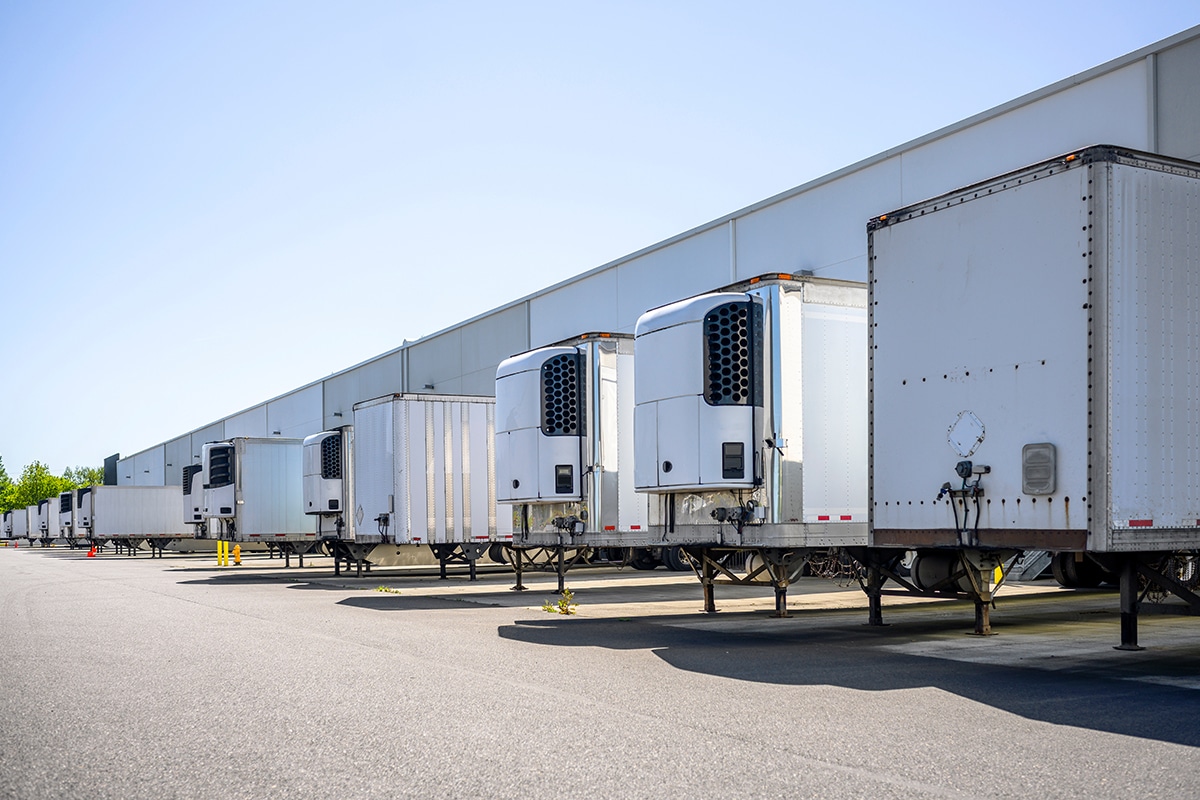Top Innovations in Transportation Refrigeration: Enhancing Performance and Safety
The landscape of transportation refrigeration is going through considerable makeover, driven by advancements aimed at enhancing both efficiency and safety and security. As these developments continue to advance, it is important to discover their effects on operational techniques and governing conformity, motivating a more detailed examination of exactly how they improve the future of transport refrigeration.
Smart Temperature Keeping Track Of Systems
In the world of transportation refrigeration, smart temperature level tracking systems have emerged as an essential technology for ensuring the integrity of temperature-sensitive products. These advanced systems utilize Internet of Things (IoT) innovation to offer real-time information on temperature level fluctuations, enabling drivers to maintain ideal conditions throughout the supply chain. By continually tracking the temperature level of refrigerated containers and automobiles, companies can quickly recognize discrepancies that may endanger product quality.

Additionally, smart monitoring systems usually incorporate automated informs and notifications, allowing stakeholders to react promptly to any kind of potential concerns. This proactive technique not just reduces the threat of spoilage however additionally enhances compliance with regulative criteria governing food safety and pharmaceutical transport.
The assimilation of information analytics within these systems also assists in anticipating upkeep, aiding drivers to foresee prospective devices failings prior to they take place. This capacity reduces downtime and optimizes operational effectiveness, eventually bring about set you back financial savings.
Eco-Friendly Refrigerants
Smart temperature level monitoring systems play a vital duty in maintaining item quality, however the performance of transport refrigeration additionally rests on the option of refrigerants utilized. As ecological concerns increase, the change towards environment-friendly refrigerants has come to be vital. Typical refrigerants, such as hydrofluorocarbons (HFCs), are well-known for their high International Warming Potential (GWP), contributing dramatically to climate change. In comparison, arising alternatives like hydrocarbon-based refrigerants and hydrofluoroolefins (HFOs) existing lower GWP choices, using both performance and sustainability.
These eco-friendly cooling agents not only decrease ecological influence but also line up with worldwide guidelines focused on eliminating unsafe substances. Their adoption can bring about improved power effectiveness, eventually reducing operating expenses for transport refrigeration systems. Furthermore, the use of natural refrigerants, such as ammonia and carbon dioxide, has acquired traction due to their superb thermodynamic residential properties and reduced ecological impact.
Purchasing environmentally friendly refrigerants is not just a governing compliance measure; it stands for a tactical choice that enhances brand name reputation and cultivates client loyalty. reefer trucks thermo king. By focusing on sustainable techniques, business can add to a greener future while making certain the stability of transferred items
Advanced Insulation Materials
Making use of sophisticated insulation products is vital for optimizing transport refrigeration systems, as they significantly improve power effectiveness and keep constant temperature level control. Traditional insulation techniques often drop brief in avoiding thermal transfer, bring about increased power intake and varying temperature levels within cooled areas.
Emerging materials such as vacuum cleaner insulated panels (VIPs) and aerogels use superior thermal resistance, permitting thinner accounts without endangering performance. VIPs, as an example, make use of a vacuum cleaner layer to minimize convective and conductive warmth transfer, making them perfect for space-constrained applications. Aerogels, recognized for their porous and light-weight framework, provide extraordinary insulation while substantially lowering overall system weight.
Furthermore, integrating stage adjustment products (PCMs) right into insulation systems can further stabilize temperatures during transit. These materials take in and release thermal energy, efficiently buffering against outside temperature variations.
The combination of these sophisticated insulation products not only minimizes the functional expenses connected with energy usage however likewise extends the life span of temperature-sensitive goods. As the transport refrigeration industry proceeds to evolve, the fostering of cutting-edge insulation modern technologies will be essential in boosting both performance and security in chilled transportation.
Automated Route Optimization
The efficiency of transportation refrigeration systems is greatly enhanced via automated course optimization, which leverages real-time data and innovative formulas to figure out the most efficient courses for shipment. By evaluating various factors such as website traffic patterns, climate condition, and shipment windows, these systems can significantly lower traveling time and fuel intake.
Automated path optimization reduces human mistake and subjective decision-making, which can cause ineffectiveness. This technology enables fleet supervisors to assign sources a lot more efficiently, ensuring that important link cooled goods keep their needed temperature level throughout the journey. By optimizing paths, companies can additionally improve customer satisfaction with prompt deliveries.
Additionally, automated systems can adapt to unpredicted situations, such as roadway closures or unexpected website traffic spikes, permitting vibrant rerouting. This flexibility not just protects the stability of temperature-sensitive items but likewise adds to overall functional efficiency.
Carrying out automated route optimization can lead to significant cost financial savings while decreasing the carbon impact related to transport. As companies significantly prioritize sustainability, this advancement stands out as an essential component in modern-day transportation refrigeration, straightening operational objectives with ecological responsibility. Ultimately, automated course optimization stands for a substantial development in the quest for efficiency and safety and security in transportation Full Article refrigeration.

Real-Time Information Analytics
Automated course optimization significantly gain from the combination of real-time data analytics, which provides vital understandings right into the performance of transportation refrigeration systems. By using real-time information, transportation drivers can check temperature fluctuations and tools efficiency, making certain that subject to spoiling goods are maintained within needed specifications throughout transit. This aggressive method not only improves the high quality of the transferred products yet likewise alleviates the danger of spoilage and loss.

In enhancement to improving effectiveness, real-time analytics enhances security by making sure conformity with governing requirements for temperature control. This not just shields public wellness however also fortifies a business's credibility - thermo king truck refrigeration units. As the transport refrigeration sector evolves, the assimilation of real-time information analytics emerges as a foundation for driving innovation, you could look here sustainability, and functional quality
Conclusion
In final thought, the developments in transportation refrigeration significantly enhance both performance and safety and security within the market. Collectively, these developments stand for a crucial advancement in transportation refrigeration, making certain conformity with regulative standards and promoting a greener future.
The landscape of transportation refrigeration is undergoing substantial improvement, driven by developments intended at improving both effectiveness and safety.Smart temperature monitoring systems play an important function in maintaining product top quality, however the performance of transportation refrigeration additionally hinges on the choice of refrigerants used. Their fostering can lead to boosted power efficiency, ultimately reducing operating prices for transport refrigeration systems. Ultimately, automated path optimization represents a significant improvement in the quest for effectiveness and safety in transport refrigeration.
In final thought, the advancements in transport refrigeration considerably enhance both efficiency and safety within the sector.